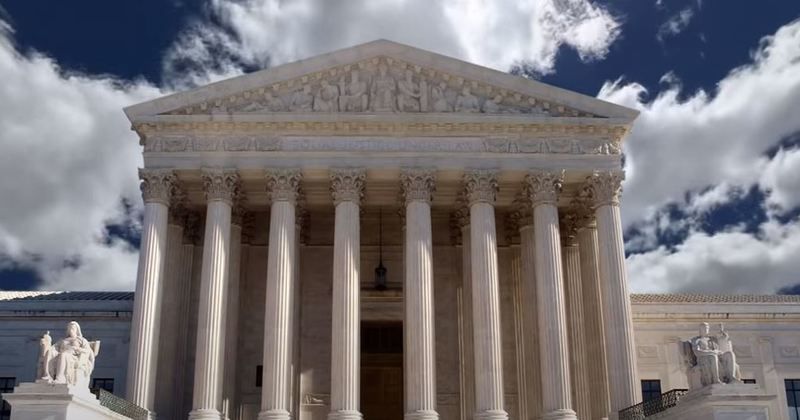On Tuesday, the Supreme Court handed Texas a win by allowing the implementation of a law empowering local police to detain migrants suspected of crossing the border unlawfully. This decision marks a significant, albeit temporary, triumph for Texas in its ongoing attempts to address illegal immigration. Previously, the Biden administration had tried to stop this law, referred to as Senate Bill 4, contending that it interfered with federal immigration enforcement powers.
???????? HUGE WIN: Texas has defeated the Biden Administration’s and ACLU’s emergency motions at the Supreme Court. Our immigration law, SB 4, is now in effect. As always, it’s my honor to defend Texas and its sovereignty, and to lead us to victory in court.
— Attorney General Ken Paxton (@KenPaxtonTX) March 19, 2024
The dispute over state versus federal authority in immigration control recalls past legal conflicts, notably the Supreme Court’s 2012 ruling on a similar Arizona law.
A lawsuit filed by the DOJ in January stated, “The United States brings this action to preserve its exclusive authority under federal law to regulate the entry and removal of noncitizens. Texas cannot establish its own immigration system. Its efforts, through SB 4, encroach on the federal government’s exclusive authority to regulate the entry and removal of noncitizens, impede the United States’ immigration operations and proceedings, and interfere with U.S. foreign relations.”
Texas Attorney General Ken Paxton praised the Supreme Court’s decision, highlighting the state’s prerogative to protect its sovereignty and enforce immigration laws.
“Texas has successfully opposed the emergency motions from the Biden Administration and ACLU at the Supreme Court. Our immigration law, SB 4, is now enforceable. It’s always my privilege to defend Texas and its sovereignty and to lead us to success in court,” Paxton remarked.
The Supreme Court’s decision didn’t delve into the case’s substance but focused on lifting the stay imposed by the Fifth Circuit Court of Appeals. Justices Amy Coney Barrett and Brett Kavanaugh, in a concurring opinion, emphasized the appellate court’s role in such matters, hinting at a potential different outcome upon detailed review.
Justices Sonia Sotomayor and Ketanji Brown Jackson dissented, criticizing the ruling for potentially exacerbating disruptions in immigration enforcement.
“Texas enacted a law that directly regulates the entry and removal of noncitizens and explicitly directs its state courts to disregard any ongoing federal immigration proceedings. This law disrupts the federal-state balance of power that has persisted for over a century, in which the National Government has held exclusive authority over the entry and removal of noncitizens,” Sotomayor stated.
 Telegram is where we really talk. Don't miss out!
Telegram is where we really talk. Don't miss out!







